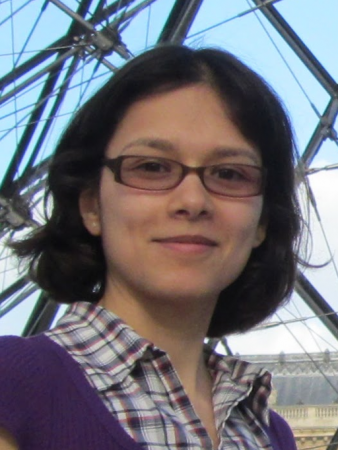Seminar
Learning Representations for Interactive Robotics
In this talk, I will be discussing the role of learning representations for robots that interact with humans and robots that interactively learn from humans through a few different vignettes. I will first discuss how bounded rationality of humans guided us towards developing learned latent action spaces for shared autonomy. It turns out this “bounded rationality” is not a [...]
Motion Planning Around Obstacles with Graphs of Convex Sets
Abstract: In this talk, I'll describe a new approach to planning that strongly leverages both continuous and discrete/combinatorial optimization. The framework is fairly general, but I will focus on a particular application of the framework to planning continuous curves around obstacles. Traditionally, these sort of motion planning problems have either been solved by trajectory optimization [...]
RE2 Robotics: from RI spinout to Acquisition
Abstract: It was July 2001. Jorgen Pedersen founded RE2 Robotics. It was supposed to be a temporary venture while he figured out his next career move. But the journey took an unexpected course. RE2 became a leading developer of mobile manipulation systems. Fast forward to 2022, RE2 Robotics exited via an acquisition to Sarcos Technology and [...]
Enabling Self-sufficient Robot Learning
Abstract: Autonomous exploration and data-efficient learning are important ingredients for helping machine learning handle the complexity and variety of real-world interactions. In this talk, I will describe methods that provide these ingredients and serve as building blocks for enabling self-sufficient robot learning. First, I will outline a family of methods that facilitate active global exploration. [...]
Understanding the Physical World from Images
If I show you a photo of a place you have never been to, you can easily imagine what you could do in that picture. Your understanding goes from the surfaces you see to the ones you know are there but cannot see, and can even include reasoning about how interaction would change the scene. [...]
How Computer Vision Helps – from Research to Scale
Abstract: Vasudevan (Vasu) Sundarababu, SVP and Head of Digital Engineering, will cover the topic: ‘How Computer Vision Helps – from Research to Scale’. During his time, Vasu will explore how Computer Vision technology can be leveraged in-market today, the key projects he is currently leading that leverage CV, and the end-to-end lifecycle of a CV initiative - [...]
Motion Matters in the Metaverse
Abstract: Abstract: In the early 1970s, Psychologists investigated biological motion perception by attaching point-lights to the joints of the human body, known as ‘point light walkers’. These early experiments showed biological motion perception to be an extreme example of sophisticated pattern analysis in the brain, capable of easily differentiating human motions with reduced motion cues. Further [...]
What do generative models know about geometry and illumination?
Abstract: Generative models can produce compelling pictures of realistic scenes. Objects are in sensible places, surfaces have rich textures, illumination effects appear accurate, and the models are controllable. These models, such as StyleGAN, can also generate semantically meaningful edits of scenes by modifying internal parameters. But do these models manipulate a purely abstract representation of the [...]
Life as a Professor Seminar
Have you ever wondered what life is like as a professor? What do professors do on a daily basis? What makes the faculty career challenging and rewarding? Maybe you have even thought about becoming a faculty member yourself? Join us on March 22nd from 2:00 - 3:30 PM, where a panel of CMU faculty will [...]
A Constructivist’s Guide to Robot Learning
Over the last decade, a variety of paradigms have sought to teach robots complex and dexterous behaviors in real-world environments. On one end of the spectrum we have nativist approaches that bake in fundamental human knowledge through physics models, simulators and knowledge graphs. While on the other end of the spectrum we have tabula-rasa approaches [...]









